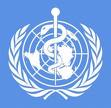/topics/governance
Governance
Capacity Building for Integrated Water Resources Management (Cap-Net) - United Nations Development Programme (UNDP)
Posted on 30 Apr, 2010 11:47 AM![]() Cap-Net is an international network for capacity building in Integrated Water Resources Management (IWRM). It includes a partnership of autonomous international, regional and national institutions and networks committed to capacity building in the water sector.
Cap-Net is an international network for capacity building in Integrated Water Resources Management (IWRM). It includes a partnership of autonomous international, regional and national institutions and networks committed to capacity building in the water sector.
The Cap-Net website has a number of resources on water management issues and includes:
Water conservation by Industry – A case study of Paharpur Business Center - Software Technology Incubator Park, New Delhi
Posted on 30 Apr, 2010 11:22 AMThis presentation deals with the projects implemented by Paharpur Business Centre and Software Technology Incubator Park (PBC-STIP), New Delhi towards reduction in potable water consumption through its projects on water closet replacement, waterless urinal and sensor tap.
The other potable water savings projects of PBC-STIP include dish washer (GE make), soap free water for gardening, use of native plant species, drip irrigation, hydroponics culture for growing plants and use of conductivity meter. Its initiative in water conservation runs across all verticals and it engages with the supply chain to sensitize them on water issues.
Water conservation by Industry – A case study of Mahindra and Mahindra, Zaheerabad
Posted on 30 Apr, 2010 11:07 AMThe presentation deals with Mahindra and Mahindra’s (M&M) work on optimal utilization of groundwater resources in its vehicle manufacturing plant at Zaheerabad, Andhra Pradesh. M&M had taken help from ICRISAT and Groundwater Department of GoAP to study the hydro-geology and topography of the estate and prepare ground water maps.
A time bound master plan of water augmentation was worked out to undertake activities like rainwater harvesting pits, new locations for borewells/ openwells/ percolation tanks, planting of less water intensive trees, re-usage and re-cycling of wastewater, rainwater channels to recharge the under ground water reservoirs and installation of drip irrigation.
Water conservation by Industry – A case study of PepsiCo, Roha
Posted on 30 Apr, 2010 10:54 AMThis presentation describes the vision and strategy of PepsiCo, Roha, Maharashtra and its initiatives in the area of water conservation. The plant with three filling lines (bottling and canning) has tried to achieve positive water balance through water savings at plant level, water initiatives at community level and by promoting water conservation measures in agriculture.
Water conservation by Industry – A case study of ITC, Saharanpur
Posted on 29 Apr, 2010 12:41 PMThis presentation describes the work of ITC Saharanpur, a cigarette manufacturing company in the field of water conservation. Its water saving projects are centered around re-use of treated water for reducing water consumption, Effluent Treatment Plant (ETP) based effluent network system in residential areas, rainwater harvesting, installation of Cold Plasma Unit in place of wet scrubbers and installation of a jet spray system.
Water conservation by Industry – A case study of Indo Rama Synthetics Ltd, Nagpur
Posted on 29 Apr, 2010 10:41 AMThis presentation describes the effort of Indo Rama, Butibori in carrying out production of polyester yarns, fiber and chips in an environmentally conscious manner and its work in conserving and harvesting water in its industrial processes and premises. In particular, it discusses the clean technologies used in production such as –
- Reduction in steam consumption at PSF Plant and in CP (through use of Zimmer technology-based glycol ejector)
- Reduction of drift losses in cooling towers by replacement of eliminators
- Conversion of condensate to flash steam and its reuse in boilers
Developing Public Private Community Partnership Projects – Water Sector, CII, New Delhi
Posted on 28 Apr, 2010 03:20 PMOrganizer : Confederation of Indian Industry
Venue : New Delhi at IHC, Amaltas hall
Description:
Confederation of Indian Industry is organising a “half a day workshop on “Developing Public Private Community Partnership Projects – Water Sector” jointly with Global Water for Sustainability (GLOWS) on 29th Apr 2010 in New Delhi at IHC, Amaltas hall.
This program is sequel to four earlier training programs conducted in New Delhi, Hyderabad, Kolkota and Coimbatore on “Water Management - Beyond the Fence line”
"Issues of Water Governance in the Man Basin - Rahul Banerjee" : Water MOVES, Feb 2010
Posted on 28 Apr, 2010 02:30 PMHighlights of the February 2010 issue of "Water MOVES", a quarterly newsletter on Water Governance from the Water Governance Project at Society For Promotion of Wastelands Development (SPWD):
2010 UN-Water Global Annual Assessment of Sanitation and Drinking-Water (GLAAS)
Posted on 27 Apr, 2010 01:18 PM
The Global Annual Assessment of Sanitation and Drinking-Water (GLAAS) is a UN-Water initiative implemented by the World Health Organization (WHO). The objective of UN-Water GLAAS is to provide policy makers at all levels with a reliable, easily accessible, comprehensive and global analysis of the evidence to make informed decisions in sanitation and drinking-water.
With over 2.6 billion people living without access to improved sanitation facilities, and nearly 900 million people not receiving their drinking-water from improved water sources, UN-Water GLAAS highlights where efforts stagnate in achieving the Millennium Development Goal Target 7.C.¬ to halve, by 2015, the proportion of people without sustainable access to safe drinking-water and basic sanitation. It also highlights the post-2015 challenges that need to be addressed by the United Nations system to collectively support its Member States.
More rain water needed for the east flowing rivers of South India
Posted on 25 Apr, 2010 01:58 PMSIMPLE & EFFECTIVE Method to increase WATER to east flowing RIVERS of SOUTH INDIA.
WESTERN GHATS are the mighty walls created by the nature.





